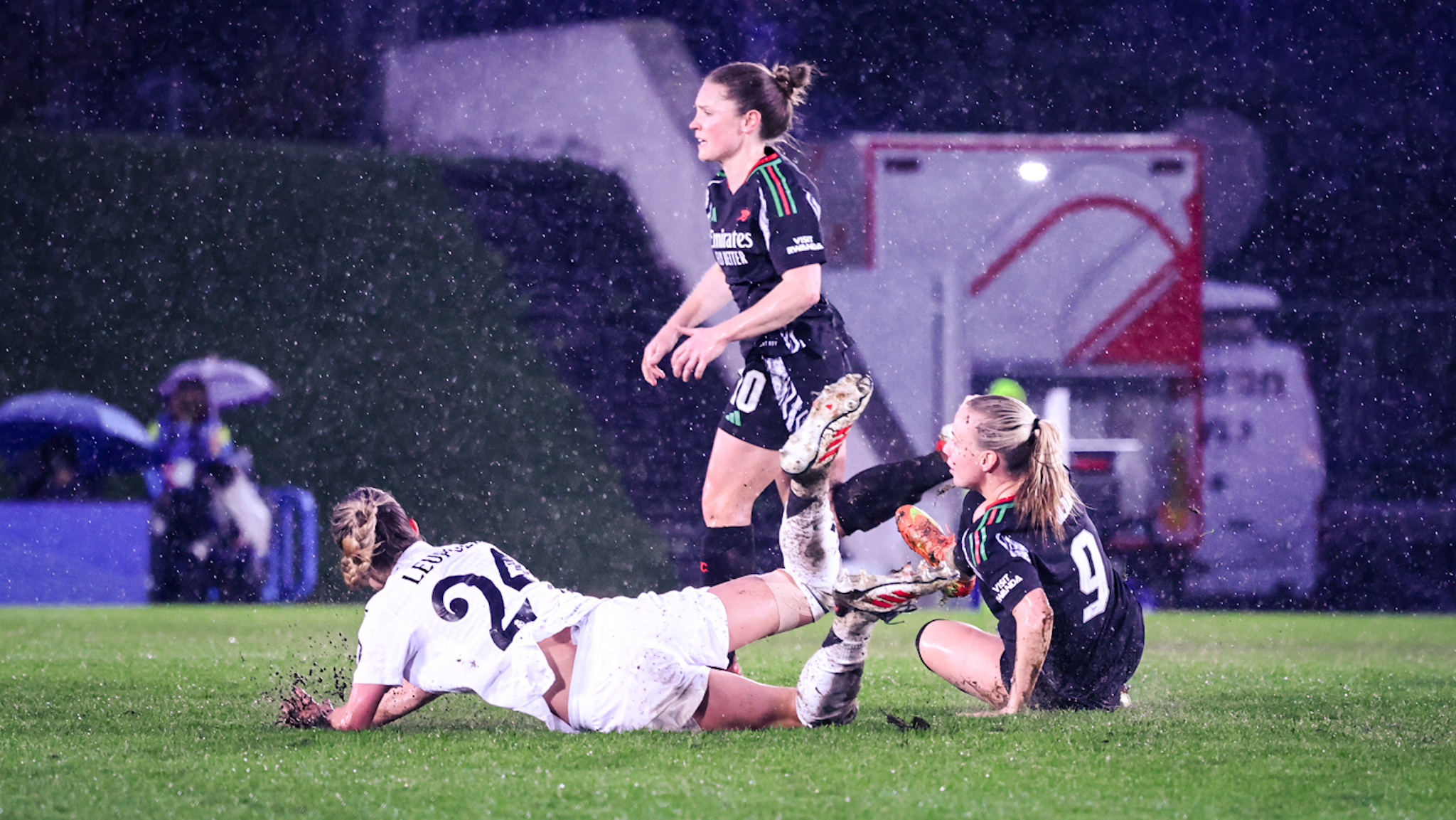Tuesday, March 18, wasn’t supposed to be about the pitch. Real Madrid stunned Arsenal 2-0 in the first leg of their UEFA Women’s Champions League quarter-final tie.
But instead of celebrating or mourning the result, the only thing anyone could talk about was the horrendous, embarrassing, downright unacceptable state of the pitch.
The game was played at the Estadio Alfredo Di Stéfano, not the Bernabéu, despite it being free due to the men’s international break.
At first glance, it looked more like a muddy Sunday League match or a PE lesson on a rainy day than a European knockout clash between two big names.
Real Madrid’s iconic white kits were caked in mud, and players were slipping left right and centre – a glaring injury risk.
Arsenal manager Renee Slegers didn’t blame the defeat on the pitch, but she didn’t hold back either.
“Women’s football deserves to play on good surfaces, not least because of player injuries as well,” she said.
Even Ian Wright, a staunch advocate for the women’s game, couldn’t hold back his outrage.
“How do you expect professionals to play on that?!” he raged on social media.
He wasn’t wrong. This wasn’t just a bad pitch; it was symbolic of how women’s football continues to be treated like an afterthought.
A bigger problem
This isn’t about one bad pitch in Madrid though. It’s about a pattern.
Time and time again, we’ve seen women’s teams denied the same resources, respect, and platforms as their male counterparts.
The Bernabéu – empty and available – could have hosted this game. But no.
The women were shuffled off to the Di Stéfano, where non-league referees reportedly had to inspect the pitch before kickoff to ensure it was even playable – it wasn’t.
The message was clear: Women’s football still isn’t a priority.
Double standards
Los Blancos were hosting a UEFA Women’s Champions League game, yet they played on a pitch not worthy of any professional athlete.
We don’t see the men’s teams playing UCL games on pitches of such atrocious conditions.
The men’s team get the best facilities, the best pitches, and the best platforms, while the women are left to make do with whatever scraps are left behind.
And it’s not just Real Madrid. This is a systemic issue across football.
From unequal pay to subpar training facilities to poor pitch conditions, women’s teams are constantly fighting uphill battles just to be treated with basic respect.
Time for real change
This isn’t just about Real Madrid. It’s about the future of the women’s game.
If we want to see women’s football continue to grow, then we need to see real change.
Clubs need to do better. Leagues need to do better. UEFA need to do better.
“I was watching maybe two or three weeks ago, Real Madrid already played on that pitch against Barcelona, and the pitch was really bad,” Chelsea manager Sonia Bompastor noted.
“I think…UEFA should take some decisions and should [force] the clubs to be able to have another pitch, especially when it’s an international break for the men’s side and the stadium – the big stadium – is available.“
“I know it costs money for sure, but if you want to help women’s football you need to make that decision.”
If we keep sending the message that women’s football is second-class, and an afterthought, we will never see it reach its full potential.
These athletes give their all. Footballing institutions need to return that favour.
So, to Real Madrid, UEFA, and every other club and organisation that still treats the women’s game like an afterthought: do better.
Because women’s football deserves better.
This isn’t just about one pitch – it’s about changing the culture of football.
The women’s game is growing, and it’s time for the institutions to catch up. We won’t stop calling them out until they do.



